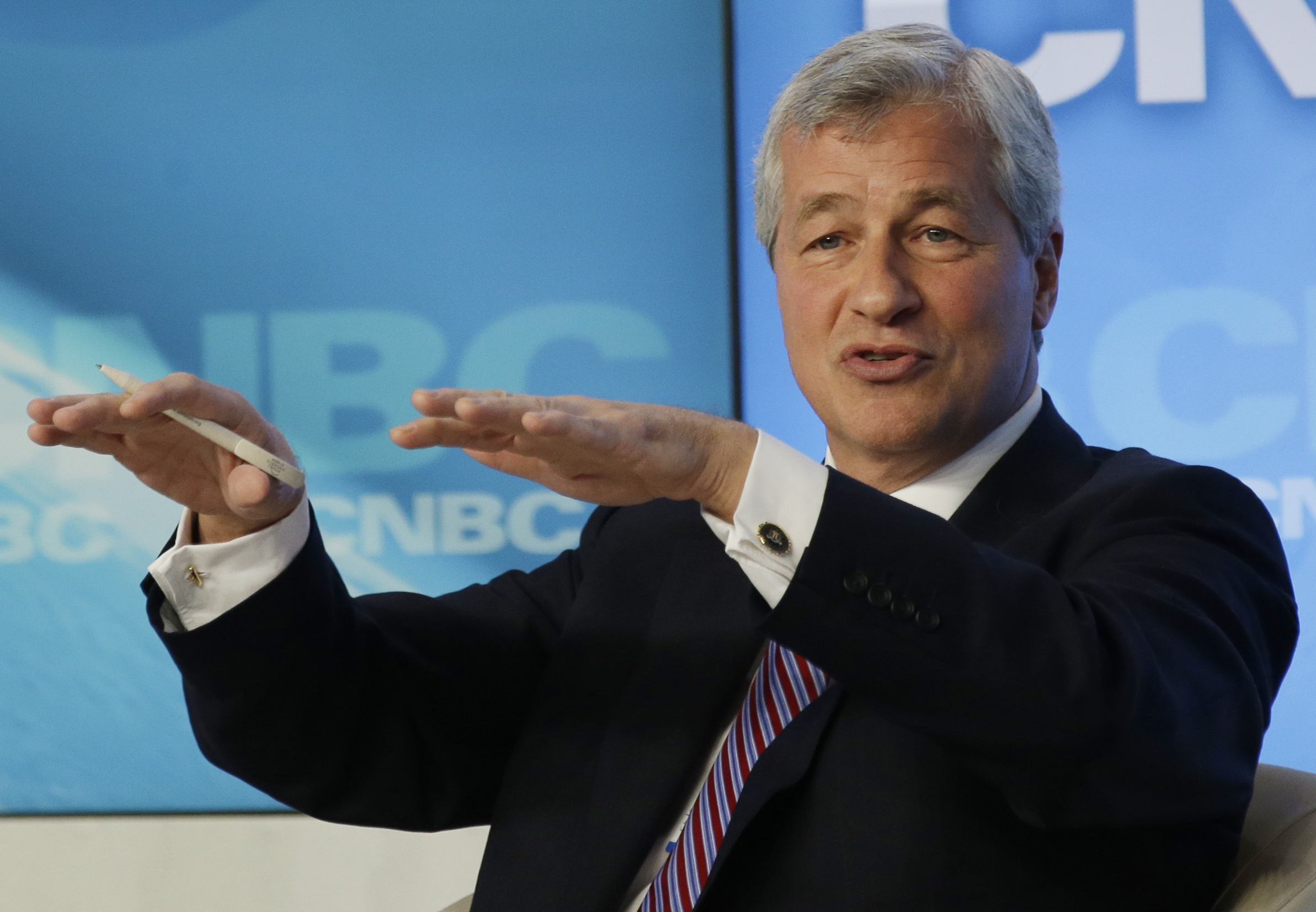The trade war unleashed by the president of the USA, Donald Trump, is starting to generate opposing voices among Wall Street leaders after the market disaster and the increasing risk of recession.
The world's and the United States' first banker warns of the negative effects of the tariff increase and asks for it to be "resolved as soon as possible." This is expressed by James Dimon, president of JPMorgan, in his annual letter to shareholders published this Monday, in stark contrast to the words of Trump or the US Treasury Secretary, Scott Bessent.
In the extensive 58-page letter, Dimon warns that "significant short-term effects are likely" on the US economy itself, including "inflation will probably rise not only in imported goods, but also in domestic prices." And he considers the slowdown of the US economy as self-inflicted damage: "Whether the tariff increase will lead to a recession or not remains uncertain, but it will slow down growth".
In line with most Wall Street analysts, Dimon emphasizes that "there are many uncertainties surrounding the new tariff policy." Among them, he mentions "possible retaliations including those related to services by other countries, the effect on confidence, the impact on investments and capital flows, and on growth and employment." The EU does not rule out responding with the so-called "anti-coercion mechanism" that would not only close the market to goods but also to services, which particularly concerns Wall Street banks.
Dimon also warns of the "impact on corporate profits and the possible effect on the US dollar."
Therefore, "the sooner this issue is resolved, the better, because some of the negative effects accumulate over time and would be difficult to reverse."
He does not dare to discredit the measure, but Dimon does hint that he wants Trump to sit down and negotiate. "I hope that after the negotiations, the long-term effect will be positive for the United States." And he emphasizes: "My biggest concern is how this will affect the economic alliances of the United States in the long term". He is particularly concerned that protectionism will lead to "fragmentation of the EU," which he considers very negative even for the interests of the USA.
This banker, who did not support Trump during the campaign, joins other voices of the US economic power skeptical of the measure. Particularly striking is Elon Musk, a strong supporter of the Republican throughout this time, but who this weekend advised for "zero tariffs" in the trade relations between the world's leading power and the European Union.
Another investment bank, Goldman Sachs, has raised the probability of recession for the second time since the crisis began. It is now at 45%.
